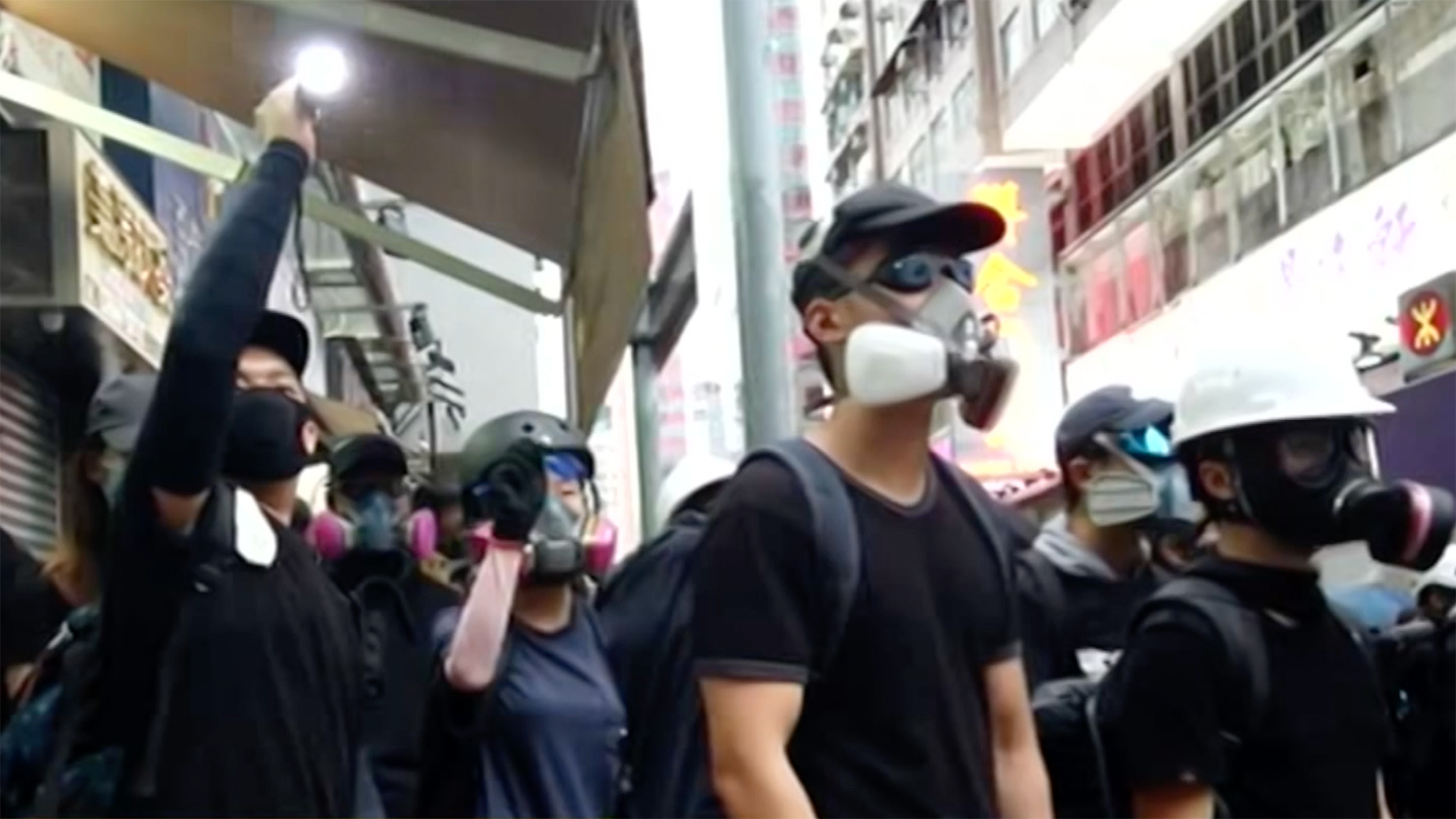

Grenville Cross, former Hong Kong chief prosecutor, has called for the preservation of law and order in the Chinese special administrative region and condemned violence against tourists and the police force, as weeks of protests show no sign of abating.
In a recent interview with CGTN, Cross said he is extremely concerned about the escalation of violence in the protests, because it is a direct challenge to the rule of law.
Violence has been used in all sorts of situations for criminal damage, for instance, in damaging the Legislative Council and streets and attacking police officers, Cross said. Such behavior is not part of Hong Kong's tradition, he added.
The protests are already taking a toll on the city's economy and tourism, the Hong Kong Special Administrative Region (HKSAR)'s government warned, with the Asian financial hub on the verge of its first recession in a decade.
Cross said it's horrific to see protesters attacking tourists from the mainland, adding that such violence will keep people from visiting the city. Hong Kong has traditionally been a very safe city that tourists from all over the world visit, but it has acquired a reputation and is showing signs of "lawlessness," Cross said.

Cross said the HKSAR government had been forced to shelve its extradition proposal, which means Hong Kong in fact becomes a safe haven for criminals from all around the world.
"Criminals can come here and claim safe haven, and they can't be sent back for trial in the jurisdictions where they originally committed the crime. That's one area that lawlessness is showing itself," he said.
The ongoing protest is the other area, he said. It has undermined Hong Kong's legal system and considerably damaged Hong Kong's reputation and deterred visitors, he went on to say.
When was asked about the harassment of the Hong Kong police and their families, Cross said there's a conspiracy to undermine the moral of the police force, which has been done by both physical attacks on police officers and psychological war.
"For example, when the activists stole the personal information of 2,000 police officers and their families, and posted them online, this caused a great deal of dismay and concern for many police families," he said.
Another example was "on the night on August 3 or 4, when a mob actually went to the homes of the police officers when the families were there and the children were sleeping. And they threw bricks and used lasers at their premises in order to try to terrorize the police officers' families," he said.
"A psychological war is being mounting against them in addition to the physical attacks," he added.
He also pointed out that these mob activities were well organized and financed.
"When the mobs are on action, one can see chains of command and operation, one can see chains of supply, and one can see directions are being given and plans are being laid well in advance. Warnings are being given – which area is going to be targeted day in and day out. As I say, someone is financing these anti-police advertisements, which are being put in newspapers in countries all around the world," he said.
"It would be foolish to pretend otherwise," Cross said.

Copyright © 2018 CGTN. Beijing ICP prepared NO.16065310-3
Copyright © 2018 CGTN. Beijing ICP prepared NO.16065310-3